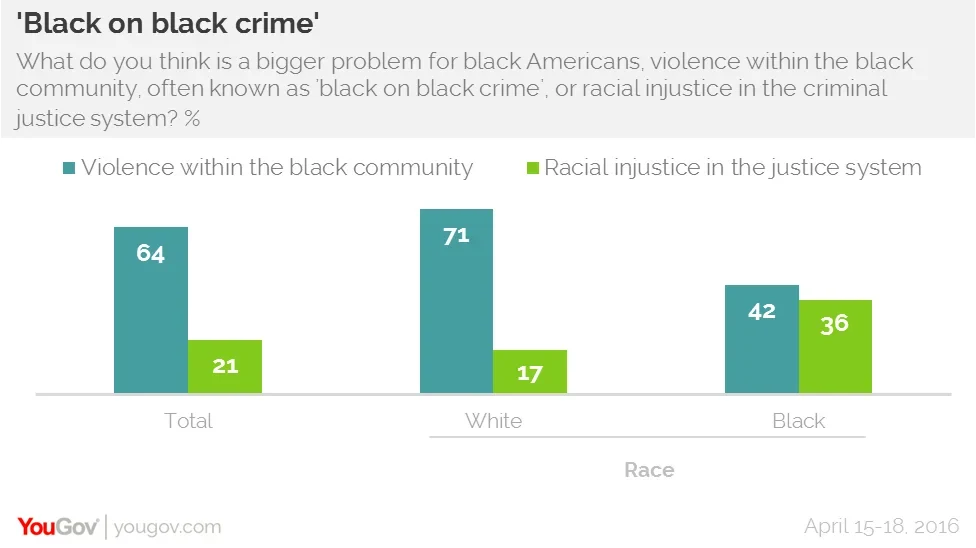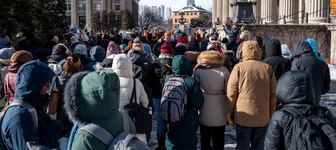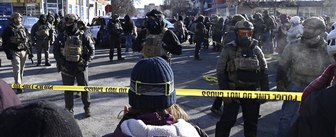Black Americans overwhelmingly have a positive view of the Black Lives Matter movement, but they narrowly say that violence within their community is a bigger problem than racial injustice in the criminal justice system
Three years ago after the acquittal of George Zimmerman for the killing of Trayvon Martin a simple hashtag, #blacklivesmatter, spread across Twitter and the internet. As the months passed a new movement, the Black Lives Matter movement, came into being after the controversial deaths of Eric Garner, Freddie Gray and other black men. The movement aims to protect black Americans from violence at the hands of the police and white Americans, and has courted significant controversy in the process.
Research from YouGov shows that, overall, Americans tend to have a negative opinion of the Black Lives Matter movement. Half the country (49%) and most white Americans (61%) have an unfavorable opinion of the Black Lives Matter movement, but black Americans overwhelmingly (68%) have a positive view of the movement. Apart from black Americans only under-30s (39% to 38%) and Democrats (56% to 24%) do not tend to have negative opinions of Black Lives Matter.
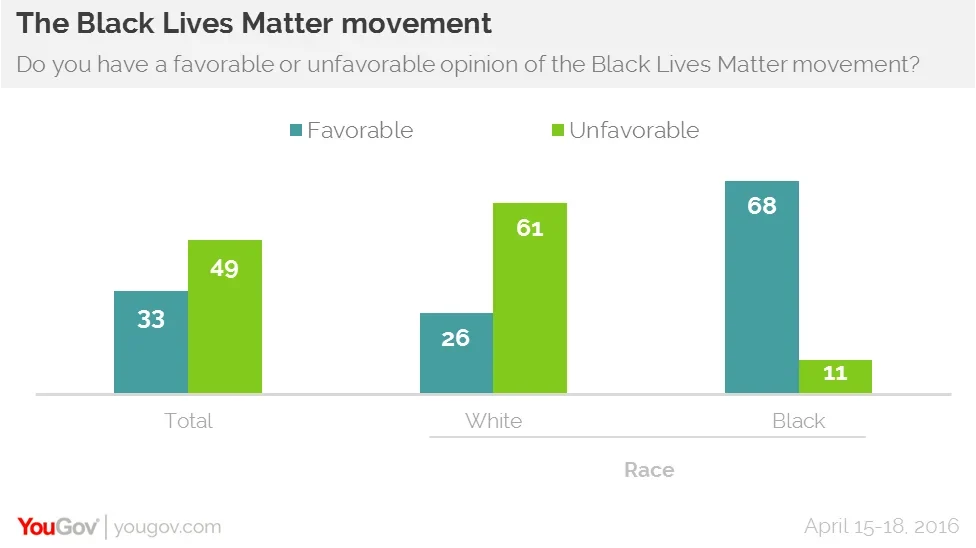
The differing attitudes towards Black Lives Matter may, at least in part, be a result of strong disagreement on whether or not black Americans currently face discrimination at the hands of the police. Most white Americans (51%) say that they think the police in most cities treat blacks as fairly as they treat whites. Only 9% of black Americans agree with this sentiment. 75% say that they do not receive fair treatment at the hands of the police in most cities.
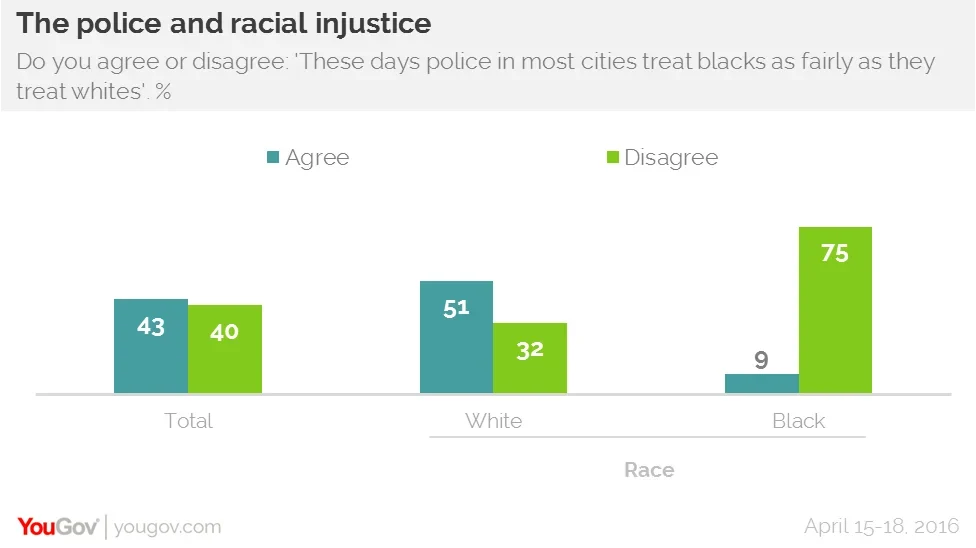
Despite this widespread perception of injustice, and support for the Black Lives Matter movement, black Americans narrowly tend to say that violence within the black community is a bigger problem than racial injustice in the criminal justice system, by 42% to 36%. By a sizeable majority, white Americans believe that violence within the black community (71%) is a bigger problem for black Americans than racial injustice in the criminal justice system (17%).
